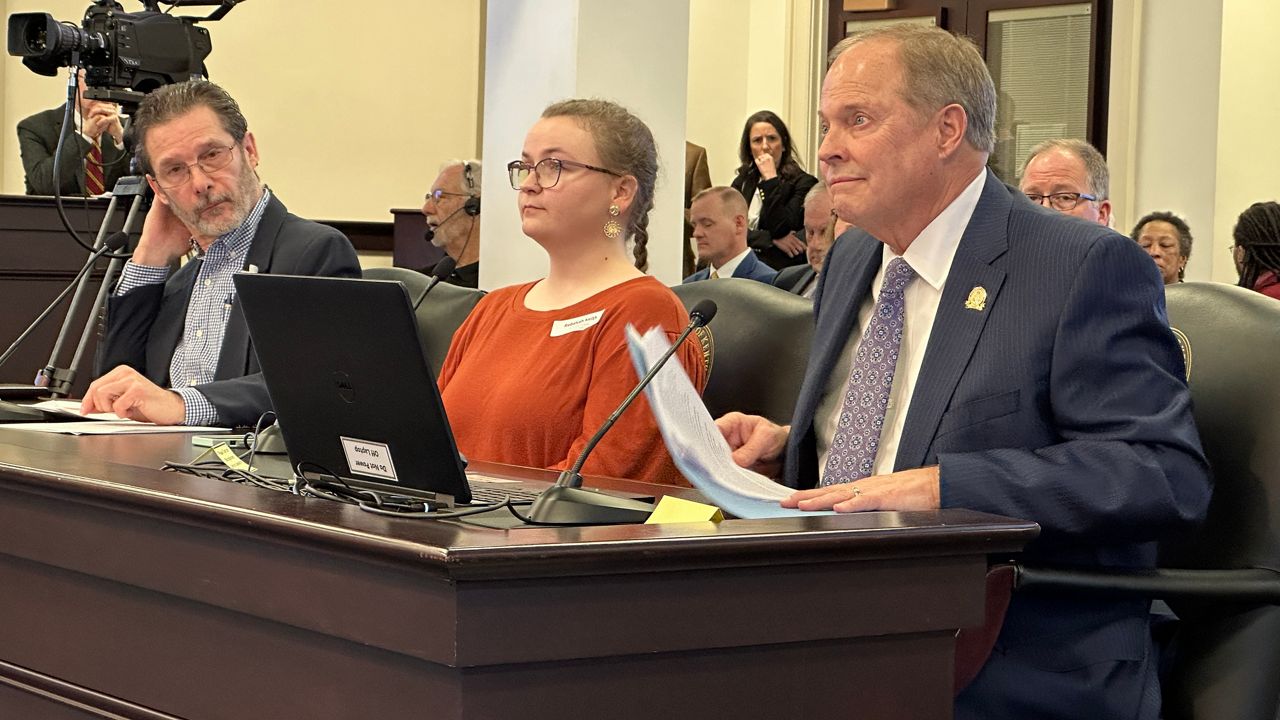A Republican lawmaker has signaled plans to mount another effort to limit diversity, equity and inclusion (DEI) practices at Kentucky's public universities after GOP supermajorities failed to resolve differences on the issue during the recently ended legislative session.
Kentucky lawmakers will convene again in January, and state Sen. Mike Wilson, R-Bowling Green, said he hopes lawmakers use the coming months to craft another version of DEI legislation for the 30-day session in 2025.
“It’ll be something that we’ll work on in the interim and hopefully come to some sort of agreement with the House," Wilson said Tuesday during a news conference featuring Senate Republican leaders.
Debates around DEI efforts on college campuses have played out in statehouses across the country this year. Republicans in at least 20 states have sought to limit such initiatives, claiming they are discriminatory and enforce a liberal orthodoxy. Alabama and Utah enacted anti-DEI laws this year, and a ban enacted in Texas last year has led to more than 100 job cuts on University of Texas campuses.
In Kentucky, the issue generated contentious debates when the Senate and House passed different versions of anti-DEI bills. Opponents warned that proposed restrictions on campuses could roll back gains in minority enrollments and stifle campus discussions about past discrimination.
State Sen. Gerald Neal, D-Louisville, said Tuesday anti-DEI efforts were “a shameless attempt to reverse the progress that our commonwealth has made.”
Wilson, who is the Senate majority whip, sponsored the bill passed by chamber Republicans in February. It would have prohibited “discriminatory concepts” in non-classroom settings, such as training sessions and orientations, and would have barred schools from providing preferential treatment based on a person’s political ideology. It also would have prohibited requiring people to state specific ideologies or beliefs when seeking admission, employment or promotions.
About a month later, the House stripped away the Senate’s language and inserted a replacement that took a tougher stance by also defunding DEI offices and officer positions. Wilson's original bill didn't call for dismantling those offices.
Senate Republicans had concerns about portions of the House version, Wilson said Tuesday without offering specifics. Both versions died when the legislative session ended Monday night.
Gov. Andy Beshear, D-Ky., denounced anti-DEI efforts last month while commemorating the 60th anniversary of a landmark civil-rights rally in Frankfort, the state’s capital city.
“DEI is not a four-letter word,” Beshear said. “DEI is a three-letter acronym for very important values that are found in our Bible. Diversity, equity and inclusion is about loving each other. It’s about living out the Golden Rule. ... Diversity will always make us stronger. It is an asset and never a liability.”
With supermajorities in both chambers, Republicans can easily override the governor's vetoes.
Neal, who is Black, said Tuesday that supporters of the anti-DEI bills want to “suppress that part of history that makes them feel uncomfortable” instead of acknowledging and learning from the past.
During the Senate debate in February, Wilson said his bill would counter what he called a broader trend in higher education toward denying campus jobs or promotions to faculty refusing to espouse “liberal ideologies fashionable in our public universities.” He said such practices extended to students and staff.
“Diversity of thought should be welcomed in our universities and higher education,” Wilson said. “But we’ve seen a trend across the United States of forcing faculty, in order to remain employed, to formally endorse a set of beliefs that may be contrary to their own, all in violation of the First Amendment.”
Looking ahead to renewed work on the issue, Wilson said Tuesday that there were portions of the House bill that GOP senators "thought we could live with,” without offering details.
Senate Majority Floor Leader Damon Thayer, R-Georgetown, predicted Tuesday that GOP senators will reach out to House Republicans to try to strike an agreement on DEI legislation that he hopes lawmakers could take up early in next year's session. Thayer is retiring from the Senate at the end of 2024.
“They will be back here in eight months, essentially, and they’ve got that amount of time to try to knock out a compromise on the DEI issue,” Thayer said.









